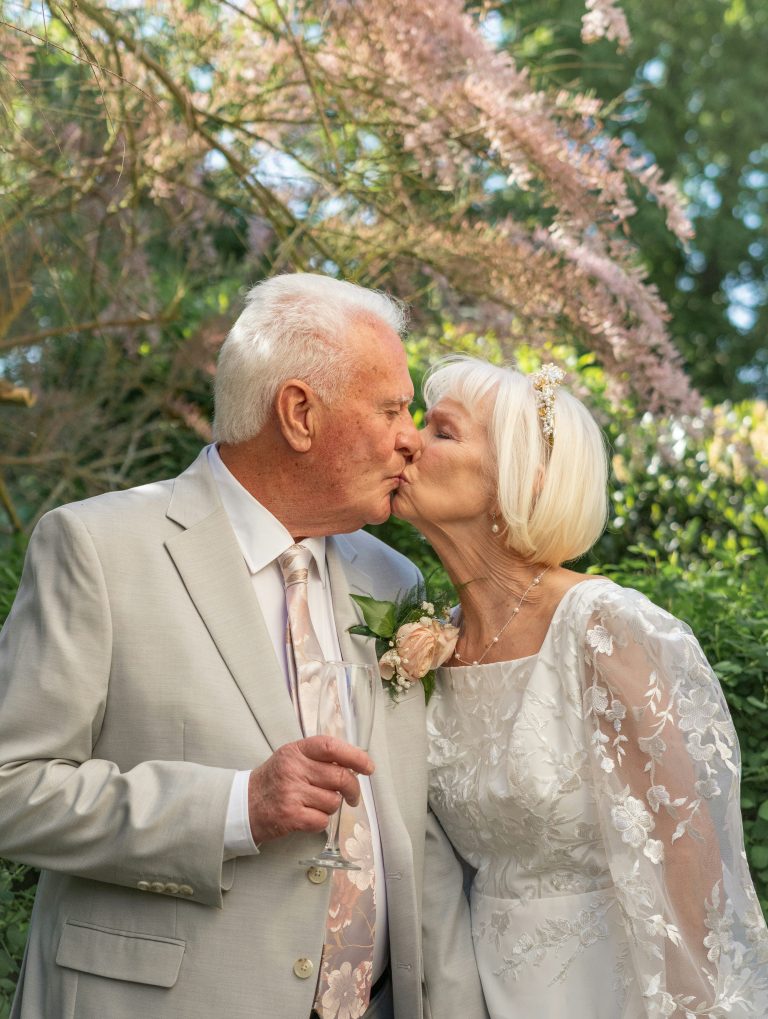
11 Signs You’re Healing Past Trauma You Didn’t Even Know You Had
Trauma is likewise not always what we think it might be — we're all traumatized from a variety of experiences, ranging in intensity. These are a few of the signs that you're beginning to process trauma that you didn't even know you had.
Trauma is sneaky in that it is subtle. It is so subtle, in fact, we can allow it to become normalized to the point that we forget it exists, until, of course, something triggers it and we are back at square one. Trauma is likewise not always what we think it might be — we’re all traumatized from a variety of experiences, ranging in intensity. These are a few of the signs that you’re beginning to process trauma that you didn’t even know you had.
1. You’re confused by your feelings.
It’s not just that you’re hyper-sensitive, it’s that you’re emotional in ways that just don’t quite make sense.
You might find yourself over or under-reacting to situations or world events. You might find yourself crying once an hour, or struggling to understand what you feel at all.
All of this is a symptom of a fundamental disconnect between you and your nervous system. In order to survive, you had to tune out your authentic feelings. Of course, this is unsustainable, so once you open yourself up to sensing them again, you’re met with an onslaught of confusion and out-of-place emotionality.
You need time to process.
Then, slowly, you need to reconnect with your ability to intuit your needs and wants.
2. You’re recalling memories you totally forgot about.
Memory suppression is another classic sign of trauma.
If you are suddenly remembering all of these experiences or instances you completely forgot about, chances are you were more traumatized by them than you think. You tuned them out in order to carry on, and now, you’re actually ready to unpack their significance in your life.
3. You’ve reached a peak of success or stability.
Though it seems counterintuitive, this is precisely the point at which most people begin emotionally unraveling.
This is simply because you are no longer just trying to survive. For a long time, your emotional health had to take a back seat while you struggled to find some stability. Now that you have it, those feelings are ready to be addressed so you can actually find fulfillment and growth.
4. You’re questioning your direction in life.
There’s a good chance that a lot of the decisions you made in your life were decided upon from a place of trauma.
You may very well look back and feel embarrassed or confused about why you dated someone, or posted something, or acted in one particular way or another.
Though you don’t need to guilt and shame yourself for your mistakes, this is actually a sign of growth. Recognizing that you behave differently today is actually a positive thing.
5. You’re experiencing an array of physical symptoms.
The tension in your shoulders and gut that you’ve had for as long as you can remember? It’s probably not unrelated to anxiety and trauma.
The same is true for a lot of “unexplainable” physical discomforts. Now, instead of just trying to treat the symptoms, you’re willing to address their causes.
6. You feel totally numbed out, or apathetic about other people’s suffering.
Ironically, many people who have suffered greatly can begin to feel apathetic about other people’s suffering simply because it’s too much of an emotional overload.
When this occurs, it’s not necessarily that you’re a bad person or that you’ve lost your empathy. It might just mean that you need to hold space for your own feelings, and process your own emotions, before you can offer the same to someone else.
7. You feel guilt or shame for no clear reason.
If the foundation of your self-worth is built on being overcorrected, judged, shamed and humiliated, you might still be carrying that around with you today.
If you feel guilty or embarrassed over innocuous things, or for no reason at all, it’s probably a past trauma that you’re still reacting to without realizing. You’re so scared of being made to feel that way again, you impose it on yourself so that nobody can hurt you first.
8. You feel as though your every move is being “watched,” judged, or evaluated by someone in a negative way.
This is another way that hypervigilance takes control of our lives.
Unable to recognize that we are no longer in danger, our bodies continue to respond as though a threat is imminent. This not only depletes our health and energy, it is the root of all traumatic experiences: an inability to discern that the event is over.
Practicing mindfulness and grounding techniques along with your other emotional processing work can be helpful for managing this.
9. You’re mentally foggy, and it’s hard to concentrate.
Yet again, your mind is overstimulated from trying to respond to too many things at once.
In this case, you have to remember that feelings aren’t always facts — they are valid experiences but don’t always say something accurate about who we are or what our future might be.
Similarly, the thoughts that we might get lost in are not always predictive or realistic. Sometimes, we are simply responding to out-of-control emotions and end up in a spiral that it’s hard to get out of.
10. You’re withdrawing from others.
While this isn’t sustainable long-term, sometimes, being alone is the healthiest thing we can do for ourselves.
When we remove ourselves from other people’s expectations and needs, we’re able to start responding to our own. We’re able to be more expressive about our emotions, and we’re also able to figure out who we are independent of who we imagine other people need us to be.
Being alone forever isn’t healthy, and connection is essential for us to thrive. But being alone for a while, and especially while you are healing, can be extremely powerful.
11. You’re questioning what you once thought to be true.
Your old belief system simply cannot carry you into this next phase of your life.
You’re ready to start pulling apart a lot of what you built as a response to your trauma, and as a way to survive.
You’re ready to build a new worldview that is more accurate, more realistic, and in which you are a capable and competent person capable of living a good life — no matter what is or isn’t in your past.











